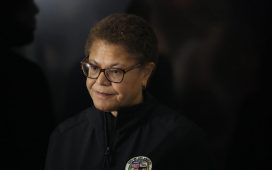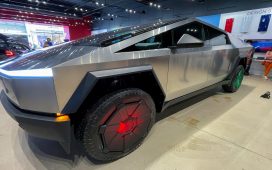The unwanted publicity comes at an uncomfortable time for Tesla, which since it broke ground on its Gigafactory in Shanghai in early 2019 has enjoyed a dream run in China, receiving all-important support from the government and appearing to skirt the tensions between Washington and Beijing.
The world’s biggest maker of EVs has extracted perks other international companies have struggled to obtain in China, the No. 1 global EV market, including tax breaks, cheap loans and permission to wholly own its domestic operations.
But over the past month, Tesla has had to defend the way it handles data in China and had its cars banned from military complexes because of concerns about sensitive information being collected by cameras built into the vehicles. After that order, CEO Elon Musk strenuously denied the company would ever use a car’s technology for spying and Tesla’s Beijing unit said cameras that are built into its EVs aren’t activated outside of North America.
Tesla has been called out by Chinese regulators over quality and safety issues before, including battery fires and abnormal acceleration. In early February, it was forced into issuing a public apology to China’s state grid after a video purportedly showed staff blaming an overload in the national electricity network for damage to a customer’s vehicle.
End of honeymoon
Tesla’s China honeymoon appears to be coming to an end at a time the U.S. automaker is facing increasing competition from a slew of younger, cashed up local EV players like the U.S.-listed Nio Inc. and Xpeng Inc., which also enjoy the support of municipal governments.
Their presence at this year’s Shanghai Auto Show was telling, with their large, shiny booths overshadowing exhibits from some of the more traditional carmakers.
For all the hype over these newer entrants, however, Teslas remain hugely popular in China, the world’s biggest car market for conventional automobiles as well. A record 34,714 China-built and imported Teslas were registered in the country in March, almost double the 18,155 registrations in February, when the week long Lunar New Year holiday slowed sales, and almost triple the number a year earlier, when the nation was in the grip of coronavrius lockdowns.
The pushback against Tesla comes as other Western brands also face greater scrutiny and become ensnared in geopolitics. Swedish clothing giant Hennes & Mauritz AB was earlier criticized by state entities for an old statement on its website about forced labor in the contentious Chinese region of Xinjiang, while there has been a marked increase in nationalism among some Chinese consumers, with campaigns to buy local brands gathering pace.








